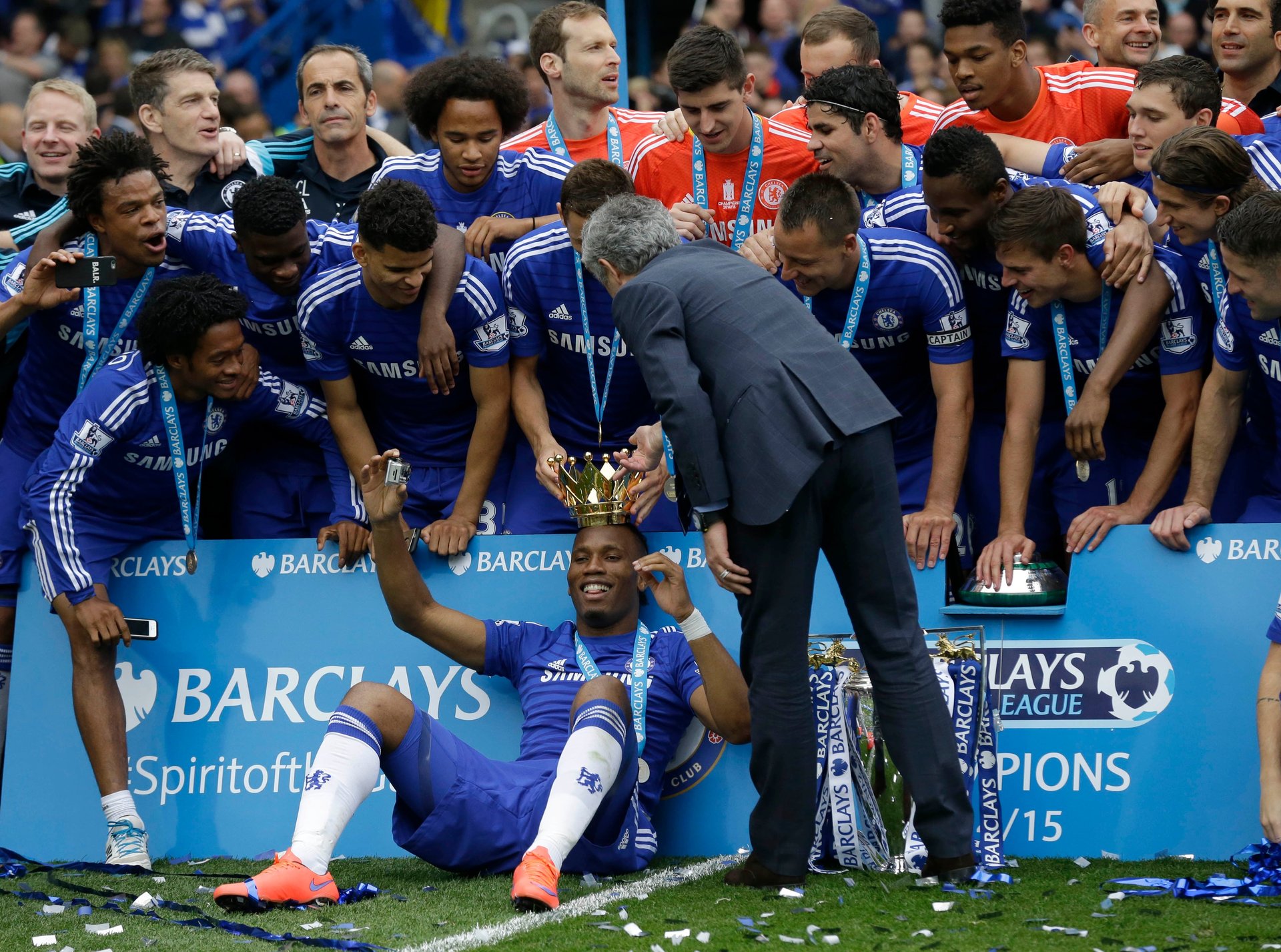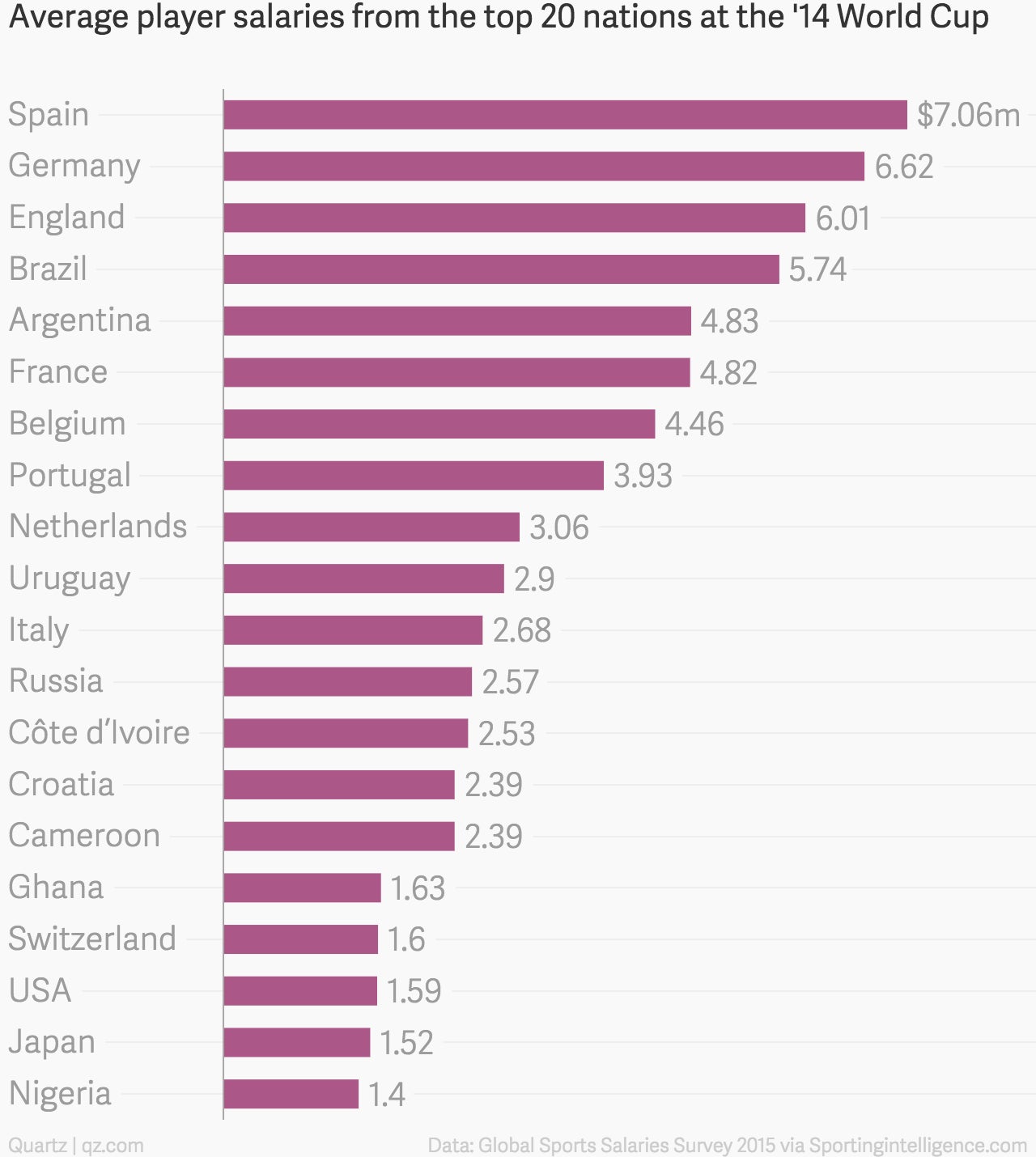What Blatter got right at FIFA: Understanding the global nature of the game
So the godfather of world football is dead. Well, not literally. But in stunning fashion, Sepp Blatter has announced that he would resign as president of FIFA.


So the godfather of world football is dead. Well, not literally. But in stunning fashion, Sepp Blatter has announced that he would resign as president of FIFA.
Even before today, plenty of people were asking how he managed to last this long in the role. And a key piece of the answer is the support he had outside of the big soccer strongholds of Europe and South America.
For all his failings, Blatter was smart enough to understand that the game is global—and whoever replaces him in the leadership structure at the top of the most popular sport in the world would be wise to adopt the same philosophy.
In granting South Africa the 2010 World Cup, Blatter sealed his support across the African continent, which helped sustain his long tenure—and the controversial re-election bid he won just last week. This victory prompted calls for European soccer’s governing body to break away from FIFA, and hold a global tournament of its own. But if the African nations were to stay with FIFA—not much of a leap given their loyalty thus far—then any attempt to compete with the World Cup would be missing a crucial element: Can you imagine a major, international tournament without Yaya Toure, the Ayew brothers, or Wilfried Bony, not to mention all the great goal-scoring celebrations?
Africa’s influence on the game is reflected in salaries that players from the continent now command in the world’s top leagues. At the last World Cup, in Brazil, Côte d’Ivoire’s players averaged an annual salary of $2.53 million, according to data from sportingintelligence.com. The reason why such players are now able to earn these salaries is mainly because a majority of them now ply their trade in Europe’s top leagues.

Nigeria, despite having only 15 players in Europe’s ‘Big 5’ leagues, is seventh in terms of average salary earned, higher than the Brazilians, Germans, and Argentinians.
What does this tell us? The political hierarchy at the top of the game needs to look beyond its own geography. Some in Europe may feel that because of FIFA’s one-country-one-vote system, African countries and the other, smaller nations, have undue influence in the way that the sport is run.
But fans look at the game a little differently. This tweet by a Tanzanian football writer captured the feeling that many of us felt when FIFA’s corruption scandal erupted.
That’s the disconnect that leaders in the game are failing to appreciate. The contemporary game is intertwined with a global base of players and fans, and this needs to be reflected in the architecture of the sport’s leadership and in the debate about FIFA’s future.
When Spain’s Barcelona play Italy’s Juventus in the UEFA Champions League final on June 6, the squads will include Europeans, South Americans, and Africans. The two teams will be European in name only, and far more global than that in their make-up.
So for those who were troubled by Africa’s (and the small nations’) support for Blatter, they need to ask themselves why he was so popular with this constituency. His support did not simply emanate from patronage but rather from his sustained investment in developing the sport on the continent. This is what sustained his global popularity and is what got him re-elected last week.
Whoever becomes FIFA’s next president will need to articulate a global vision that equally encapsulates the reality of the game as it is played on the pitch.